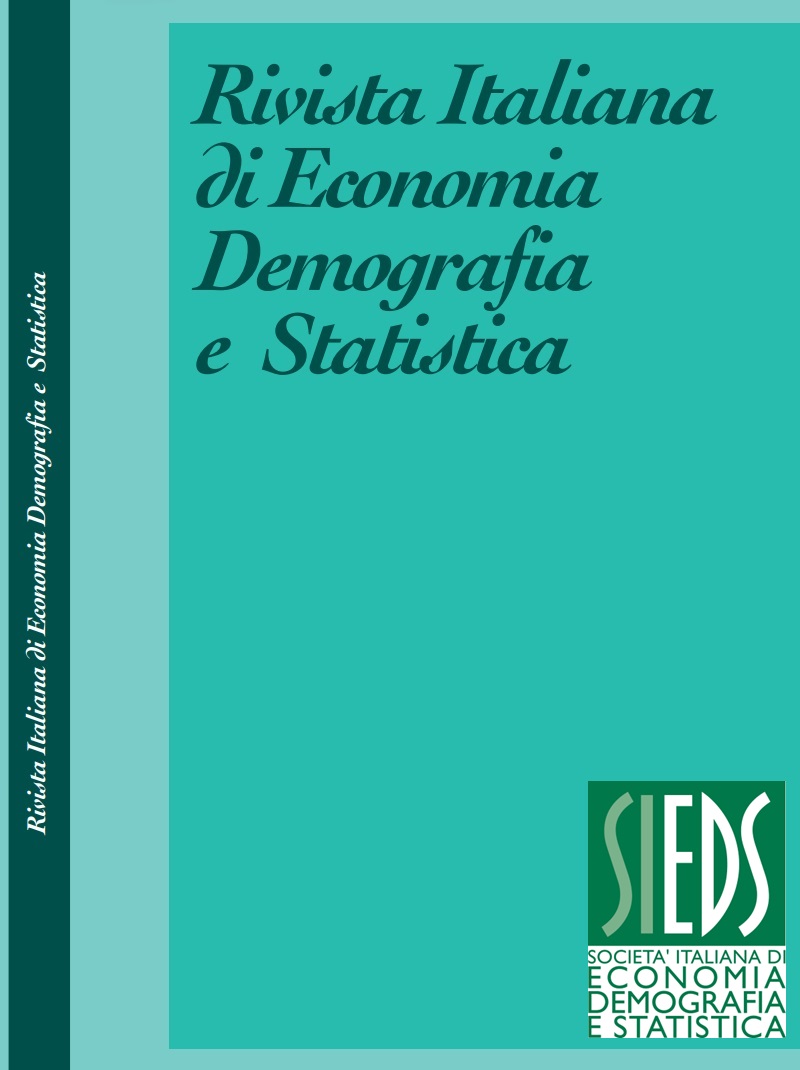The narrative of the social frailty of the older population in the Italian press
DOI:
https://doi.org/10.71014/sieds.v77i3.200Abstract
Italy is the oldest country in Europe as of 2022, with a median citizen
age of 48 years. As the older population continues to grow rapidly, issues such as
frailty and life satisfaction have become increasingly critical. One area that has
received little attention thus far is social frailty, which can be defined as
insufficient participation or a complete absence of participation in social networks,
along with a perception of inadequate contact and support (Bunt et al., 2017). This
concept encompasses various social resources or limitations, social behaviors and
activities, and self-management skills that all contribute to fulfilling social needs.
The article aims to analyse and define the issues related to the older population as
they are represented in the Italian press. In particular, the study aims to identify the
similarities and differences in the narrative in different periods (2012, 2019, 2022),
also focusing on the living conditions of the older people during the pandemic
period. The Italian press highlighted the crucial role of women in caring for elderly
relatives at home, emphasizing the importance of the gender dimension in
supporting and caring for parents. In the following years, however, the focus
shifted to the role of care institutions in preserving the individuals’ dignity and the
need for political intervention with welfare measures specifically aimed at the older
population. Policy intervention played a crucial role in improving their socio
economic conditions, primarily through the creation of specific bonuses and
allowances.
Downloads
Published
Issue
Section
License
Copyright (c) 2023 Giulia Cavrini, Marina Marino, Agostino Stavolo

This work is licensed under a Creative Commons Attribution 4.0 International License.



